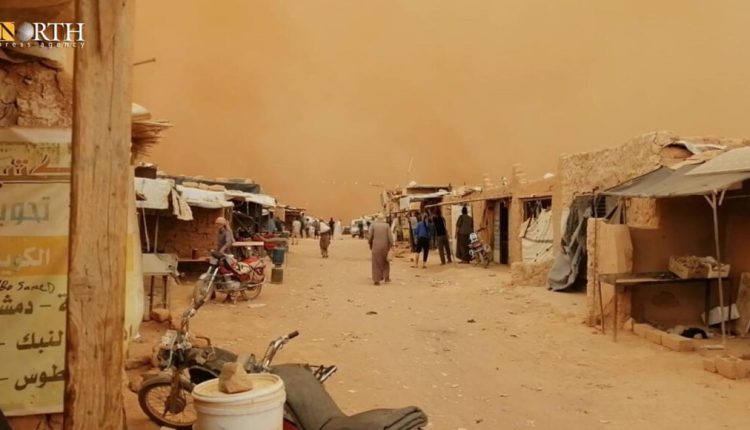Amnesty International urges U.S. to provide aid to IDPs in Rukban camp
QAMISHLI, Syria (North Press) – Amnesty International called on Monday the United States to urgently provide humanitarian aid to more than 8,000 displaced Syrians stranded in Rukban camp, an isolated area on Syria’s border with Jordan and Iraq.
Aya Majzoub, Amnesty International’s Deputy Director for the Middle East and North Africa, said, “It is unfathomable that thousands of people, including children, are stranded in an arid wasteland struggling to survive without access to life-saving necessities.”
The camp has been left without sufficient access to food, clean water, or healthcare for years, worsening the already desperate conditions for its residents.
“The residents of Rukban are victims of a brutal Syrian government siege, they have been barred from safe refuge or faced unlawful deportations at the hands of the Jordanian authorities and been met with apparent nonchalance by the US,” Majzoub added.
Since 2015, the government forces have imposed a blockade, recently tightening it by setting up checkpoints that have cut off informal smuggling routes that residents relied on for essential supplies, according to Amnesty International.
The U.S. military operates a base near the camp and maintains de facto control over a 55-kilometer zone surrounding the base and Rukban camp.
Amnesty International highlighted that “the US government has an obligation under international human rights law to ensure that residents of the camp have access to essential supplies.”
The last U.N. aid convoy to reach the camp was nearly five years ago, in September 2019, leaving the inhabitants to fend for themselves.
Rukban camp once housed around 80,000 people, but the population has dropped to 8,000 after Jordan closed its border in 2016. Many fled due to the harsh conditions, despite the severe risks in government-controlled areas in Syria.
Amnesty International called for the Syrian government to stop blocking access to the camp and to allow humanitarian aid to reach the people living there.

